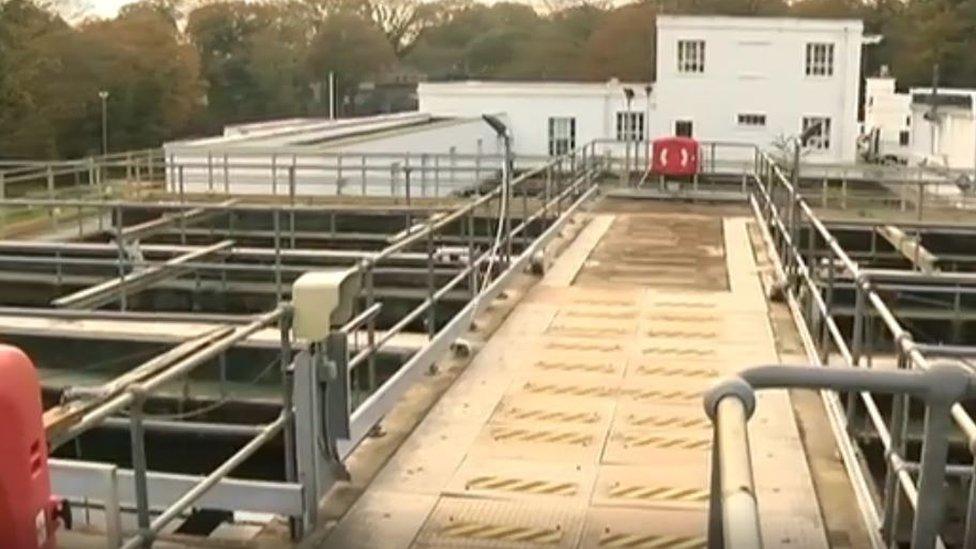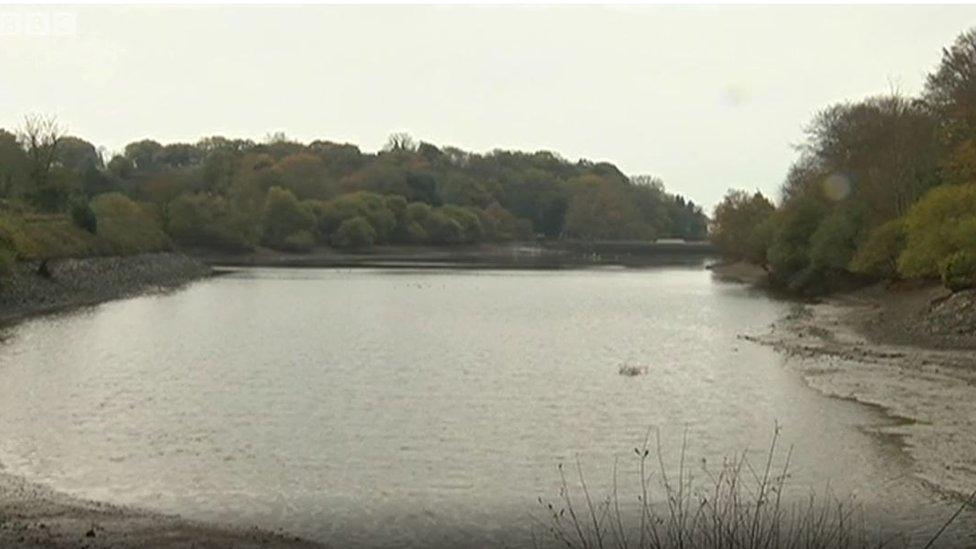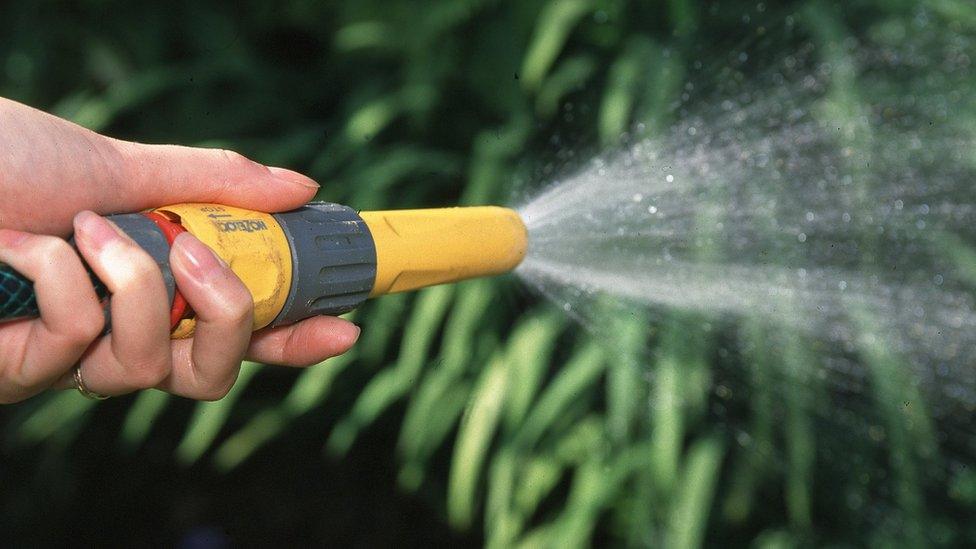Water bosses spent £371,000 converting seawater
- Published

It will be the first time the unit has converted sea water in seven years
Jersey's desalination plant cost more than £350,000 this year - and a climate change expert warns bills may increase with hotter and drier summers.
The machine, which makes drinking water from the sea, was switched on in July amid "exceptionally dry" weather, ahead of a hosepipe ban.
The desalination plant ran for 77 days, costing £371,000.
Jersey Water said the plant was funded by customers, but it was not related to next year's tariff increase.
Following heavy rainfall, which boosted reservoir levels, the plant has since been deactivated.
Jersey Water said the plant's running costs had not been "factored in" to next year's 6% tariff increase, equivalent to about £23 per year.
However, it said a "specific adjustment" may be required in future should it need to be operated more frequently or for longer periods.

Water levels in Jersey's reservoirs were significantly lower than average this summer
Prof Liz Bentley, chief executive of the Royal Meteorological Society, said desalination was "one element" of dealing with drought, particularly for an island state.
"Desalination is very costly and there is an environmental cost as well.
"There's energy consumption to take the salt out of the water and that's contributing to more greenhouse gases in the atmosphere."

Jersey Water said November's "exceptionally wet start" meant reservoirs were now 72% full
Predicting "hotter, drier summers" ahead, she said Jersey's "extreme" summer of 2022 would be considered "typical" by the middle of the century.
Describing the process as "expensive financially and environmentally", she said it would be important in future to look at sustainable sources of energy for plants like the one in Jersey.
In Jersey Water's annual report for 2018, it stated: "The relatively low reservoir storage capacity coupled with the reliance of the island on rainfall means that water resources in Jersey are particularly susceptible to periods of drought."
In 2021, the plant at La Rosiere on the south west coast of the island was used for just 14 days for a "performance trial", costing about £112,000.
Between 2011 and 2018, the plant, powered by Jersey Electricity, was not needed for drought conditions. It was then switched on in 2018 and 2019 to top up water supplies.
'Close eye'
A Jersey Water spokeswoman said the desalination plant running costs and the loss of revenue through the hosepipe ban "have not been factored in" to the tariff increase.
She added they would be "funded in this instance from reserves" - paid for by customers.
She said the plant would "remain off for the foreseeable future" but that they would be "keeping a close eye" and review as necessary.
"Going forward we will likely start up the pre-treatment stage every year to ensure that it is ready to run when needed."
On future tariff rises, she added: "Specific adjustment may be required in the future should the operation of the desalination plant become more frequent or the length of run extended."
There are no permanent staff based at the plant but engineers are there daily to oversee its operation.
The Government of Jersey is a majority shareholder in Jersey Water.
Updated on 22 November 2022: The cost of running the plant has been changed in the article from £616,000 to £371,000 after Jersey Water revised its figures.

Follow BBC Jersey on Twitter, external and Facebook, external. Send your story ideas to channel.islands@bbc.co.uk, external.
- Published11 November 2022

- Published5 August 2022
